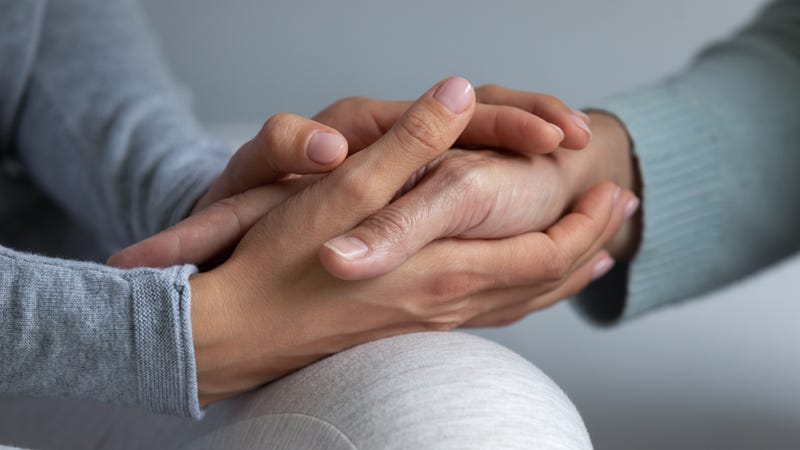
SAN FRANCISCO (KCBS RADIO) – Geriatricians play an important role for many older adults to help them continue living a fulfilling life.
KCBS’ Bret Burkhart spoke to Dr. Anna Chodos – a geriatrician and professor at UCSF School of Medicine – on this week’s episode of As Prescribed.
“We often think of it as people 65 and older because of the Medicare cutoff eligibility, right? Most people go to be Medicare beneficiaries at the age of 65,” Dr. Chodos explained. “But really what geriatricians excel at is helping older people who are experiencing conditions that are more commonly associated with aging and kind of fitting that into their life and getting the support they need to age with dignity and to thrive in older age.”
She called her patients some of the most diverse in the entire medical industry.
“Over a lifetime, you'll have different experiences and your body will age differently than somebody else,” the geriatrician continued. “Unlike most 20 year olds, which from a functional health perspective, look very similar, let's say on paper. Of course, everyone's an individual. But as we get older, all those differences are really noticeable.”
It means that each patient requires very specialized care to account for all of the experiences their body has gone through in life to the point they sit down with the doctor.
There are cases where a patient in their 90s lives a mostly, if not completely, independent life. Meanwhile, there are patients in their 60s that may require additional assistance.
Overall, the industry has seen a trend of people aging more healthily, meaning the bulk of necessary assistance really only occurs near the end of life.
Caring for the caregiver
Care is not just for the patient, but also for the patient’s caregiver.
“We recognize in absolutely every encounter with an older person that they may have somebody in their life who supports them in some way,” she stated. “They may or may not even identify as a caregiver, but it's an absolute core piece of the work that we do to identify who those folks are, what someone's support network is and how we can actually make that better or help support the caregiver, too.”
That support can vary from materials and resources to the needs and struggle a caregiver may have in their own effort to help a loved one.
Dr. Chodos said geriatricians are actively working to address the needs of caregivers when working with their own patients.
“A good geriatric practice that has a full team of nurses, social workers, and other professionals may be able to really take the time and support the caregiver with or without sort of getting paid for that frankly.”
That funding model, the doctor said, though, is beginning to change.
“Medicare has new, what we call, ‘caregiver training codes,’” she explained. “There's a new dementia program through Medicare that is actually a pilot program that's paying us to – specifically to caregivers of people with dementia – to assess them and address their needs. It's a required component of that program now.”
Dr. Chodos said this is a positive development in the industry, expanding the breadth of treatment for aging patients beyond the patient themself.
“One of our key tools in our toolbox, as geriatricians, is knowing the community resources for caregivers. And in California, we happen to be really, really rich in those resources.”
She noted that she often tells caregivers that there are millions of people in the same position as them and that there are organizations helping many of them creating peer networks to guide and assist through the process.
One example, she said, was Family Caregiver Alliance – caregiver.org – which she said was especially beneficial and impactful for people in the Bay Area and Northern California.
But for the doctor, it often comes down to that one-on-one conversation.
“I always acknowledge the caregiver and let them know, ‘Hey, I see the work that you're doing. It is so important. Look at how incredible this person is doing because of the wonderful work you're doing,’” Dr. Chodos stated. “Or if they're not identifying as a caregiver, just really thank them for what they are doing.”
